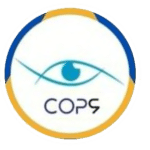Psychomotor therapy is a paramedical profession, which can be suggested to you by your
ophthalmologist. The objective of psychomotor sessions is to prevent, detect and re-educate psychomotor disorders. But why should you consult a psychomotor therapist? And for whom are the sessions intended? In this article, discover this COP9 specialty, in a multidisciplinary approach, oriented towards the body, its control and its well-being.

The objectives of psychomotor therapy
You may be led to seek a consultation following a proposal made by your ophthalmologist, or any other specialist by medical prescription. The psychomotor therapist will be there to give the necessary skills to their patients to help them become aware of their body image, their abilities and to master them.
The work between the specialist and their patient crosses three psychomotor axes: education, therapy and psychomotor rehabilitation. The objective is to regain motor skills and psychological and emotional confidence.
The psychomotor consultation is part of the patient’s motor rehabilitation. A series of exercises and techniques are applied in order to improve, or even recover, the use of a psychomotor function, following a psychomotor examination.
The purpose of a consultation is also to build a body of knowledge through sensory experiences realized during individual sessions. Emotional, representational and tonic are developed through stimulation during psychomotor therapy. The patient gains a new understanding of their own psyche.
The therapeutic aspect is also one of the issues of an appointment. The patient improves their well being and the relationship with their body. Through psychomotor therapy, certain disorders can be cured, or reduced, thanks to a readjustment of the image of the human body and mind.
How COP9 takes care of you
COP9 is pleased to inform you that any patient, of any age, can be brought to consult our psychomotor team. All profiles are received. This professional will work with the patient on their motricity, verbal and mental skills and will help them regain confidence in their body, their abilities and the emotions generated by this.
In adults, care can be provided when a change occurs in the body’s balance (cancer, depression, stroke, etc.). Adults with disabilities (motor, visual, auditory, polyhandicap, ADHD, etc.) can also seek a consultation at COP9 as part of a coordinated care program. The professional then accompanies this body, which is undergoing a change, and provides guidance on how to reappropriate muscle tone, as well as on body meditation.
In order to maintain physical skills and work on self-esteem, senior citizens are welcomed to the COP9 center. For Alzheimer’s patients as well as those with neurological disorders, psychomotor therapy sessions allow for a better cognitive development, an improvement of executive functions, and an emotional approach through relaxation.
The practice of Psychomotor Therapy in children
Chez le bébé, de 0 à 3 ans, la psychomotricité permet de dépister les TSA (troubles du spectre autistique). Par l’observation du nourrisson, le psychomotricien analyse son apprentissage psychologique et son développement psychomoteur, afin de repérer une hyperactivité ou un déficit de l’attention.
In babies, from 0 to 3 years old, psychomotor therapy allows the detection of ASD (autism spectrum disorders). By observing the infant, the psychomotor therapist analyzes their psychological learning and psychomotor development in order to identify hyperactivity or a deficiency of attention.
After the age of 3, the pediatric psychomotor therapist can work on graphic disorders : exercises, in the form of fun and educational games, allow young children to better manage fine motor skills, concentration and their emotions. After how many psychomotor therapy sessions does a child’s writing improve? Your therapist will give you regular check-ups in order to discuss the progress of your child’s development.
This practice allows the young patient to examine the subject of learning disabilities or attention deficiency. DYS, such as dyslexia, dyspraxia or dysphasia, are also treated in psychomotor therapy. The question of eating disorders and behavioral disorders are at the heart of psychomotor work, particularly in adolescents.
In conclusion, we strongly recommend that you follow the advice of your specialist and make an appointment for psychomotor therapy. Between therapy and re-education, this paramedical discipline is a solution that is proposed to you at COP9 in order to treat the psychomotor disorders of the patient: a fundamental work to connect the mind and the body.
